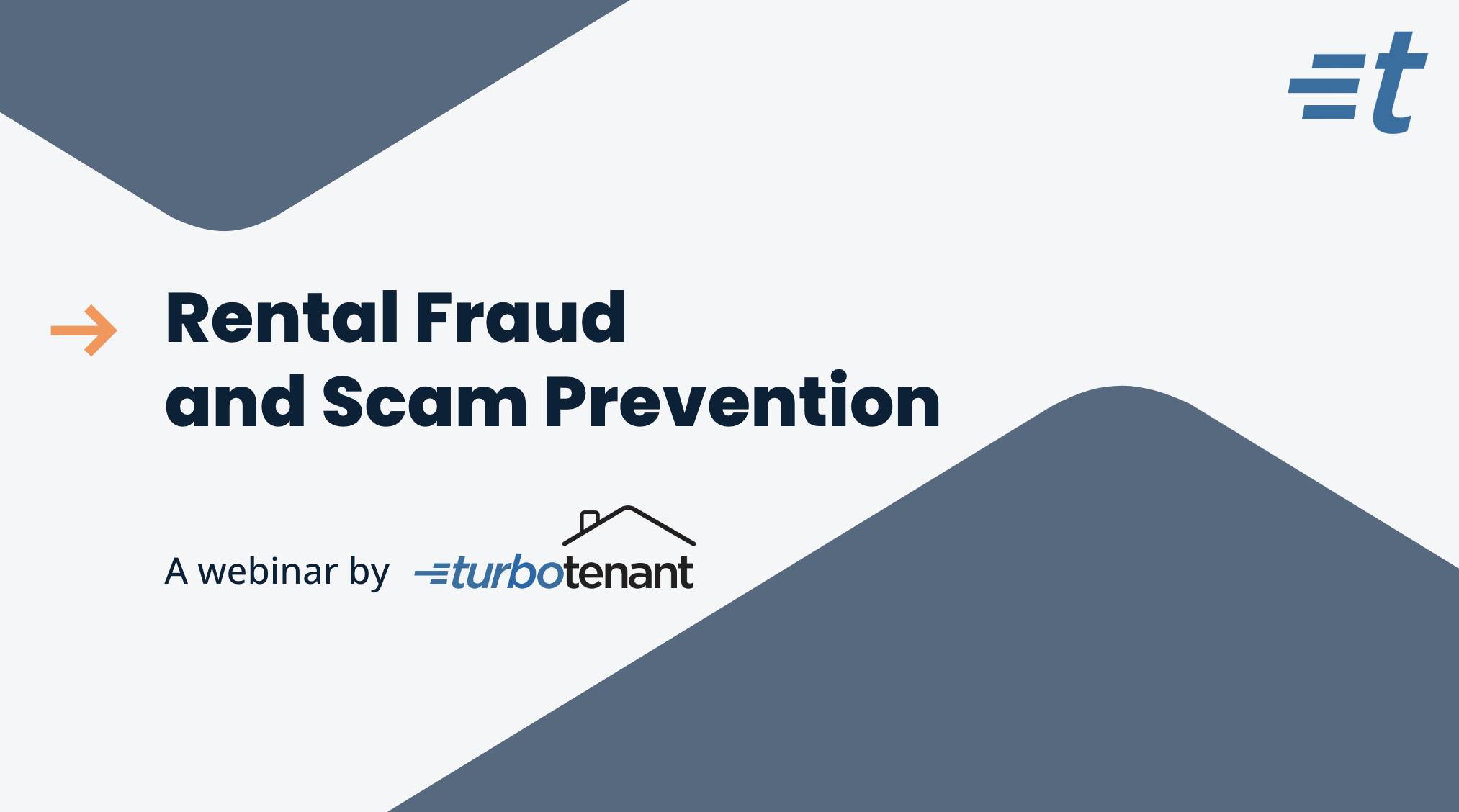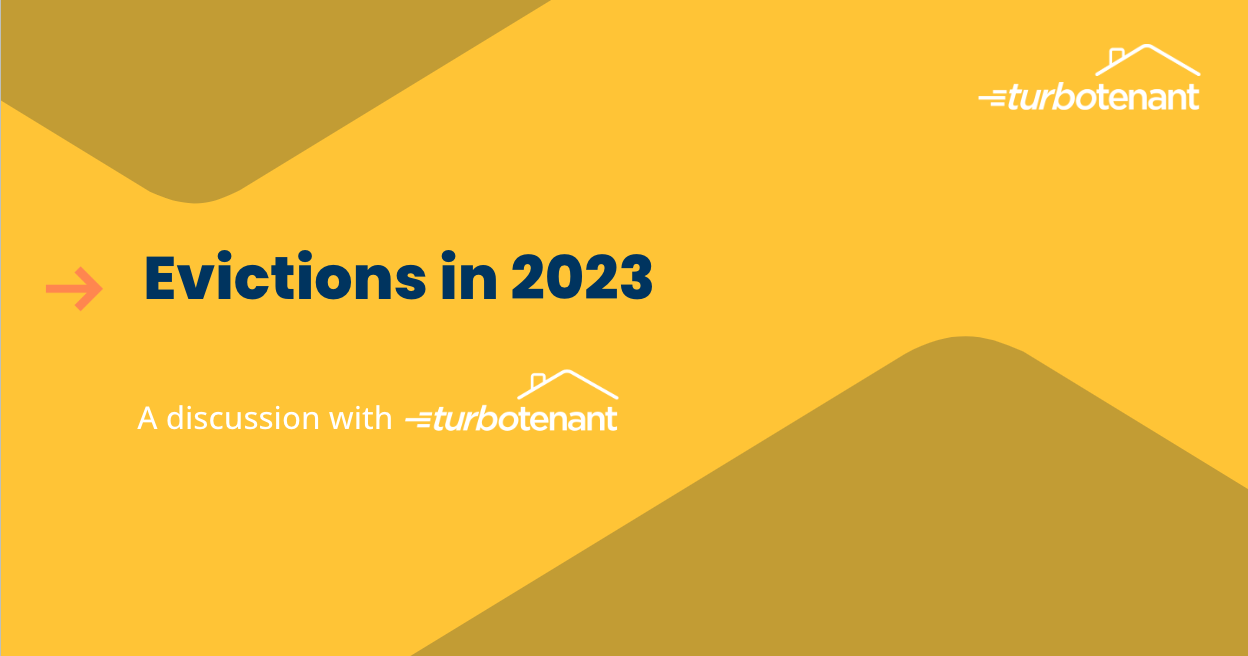Tenant Screening Webinar
In this webinar, we dive into the nitty-gritty of tenant screening, covering everything from marketing your listing to managing applicant rejections. It’s packed with practical tips on verifying tenant information and navigating the legal landscape, especially the Fair Housing Act. You’ll get a blend of real-world examples and interactive elements to make sure you walk away with actionable insights to improve your tenant screening process.
Key Takeaways
- Comprehensive Overview: This transcript provides a detailed walkthrough of a webinar focused on tenant screening, covering all aspects from marketing a listing to handling applicant rejections. It features various speakers who share insights on how to effectively screen tenants to ensure a good landlord-tenant relationship.
- Interactive Elements: The webinar incorporates interactive polls, real-time questions, and detailed explanations, enhancing engagement and providing attendees with a dynamic learning experience. This interaction helps tailor the content to the audience’s needs and queries.
- Legal and Practical Advice: The content covers both legal considerations, such as adherence to the Fair Housing Act, and practical tips, such as verifying tenant information and handling unique situations like emotional support animals or divorce impacts.
- Use of Real-World Examples: The transcript includes scenarios and case studies that illustrate common dilemmas landlords may face, offering solutions and advice on best practices for tenant screening and management.
- Resource Sharing: Throughout the webinar, resources like links to additional courses, webinars, and legal information are shared, providing attendees with tools to further their understanding and effectively manage their rental properties.
Transcript ▼
Krista Reuther:
So welcome, welcome in. We are so excited to have you with us this evening to talk about tenant screening. Specifically, we’re going to go from A to Z. So starting with marketing your listing and ending with denying applicants who don’t fit your unit. Here we have the lovely Samantha. She is my co-host this evening. Samantha, do you want to tell the people what you do at TurboTenant when I’m not forcing you to be on a webinar?
Samantha Yadav:
I would love to. So I’m on the education and community team with Krista. I am the landlord experience specialist. So I deal with landlords all day, every day. It is my jam. Talk to landlords. I email landlords.
Sometimes I call landlords. I also handle all of the social media for TurboTenant. So if you’re on Instagram or TikTok or LinkedIn or Twitter or Facebook or Reddit and you comment or like or share anything, that’s me.
That’s my word that you’re supporting. And then I also do the onboarding webinars twice a month showing landlords how to use TurboTenant. So a lot of different hats, but I’ve got a big enough closet. You can manage that. Beautiful.
Krista Reuther:
I am Krista Reuther. I am the senior content marketing writer here at TurboTenant. So I get to create our educational content with the team. It is a joy. I get to learn things every single day and then pass them along to you. So with that in mind, before we jump in, just note we are going to record this session for you and you will send you an email afterward with the deck and recording of the presentation as well. So look for that tomorrow sometime. I am still building the follow-up email. So keep that in mind. Otherwise, we can get started.
Samantha Yadav:
Yeah, we’re going to kick off with a poll. So that we can get to know a little bit more about you. So just a few simple questions. How many rental units do you own? Have you attended a TurboTenant webinar before? Do you have a TurboTenant account?
And what do you use to screen prospective tenants? You can select all that you currently use for that last option. And if you’re using a privately sourced background chat or something different than we didn’t mention or another software, we would love to know in the chat what you use, what you have used before. And if you’ve attended a TurboTenant webinar, then you have either seen Krista or my face. Krista does all of our education webinars every month. And again, I’m doing the onboarding webinars. It’s us all the time. It’s us. Hello.
Krista Reuther:
Okay, and we’ll give folks a couple seconds to roll in here anywhere from five to ten, depending on how generous I’m feeling. And at the same time, let’s see. Okay, we’ve got some people in the chat mentioning rental housing association of Washington screening and Zillow as well. Okay, interesting stuff.
Tunder as well uses Zillow. All right, we’ll give you a couple more seconds here just until I finish this sentence. Okay, let’s go ahead and share these results. So it’s always really fun for us to see the distribution of experience of the landlords who come to our webinars.
Sometimes we have a lot of experienced landlords who maybe have 11 plus units. Sometimes we have more folks who are just getting started like we do tonight. Absolutely lovely to have you, no matter your experience level, we have something to tell you today. So you are in the right place. Also, great to see that almost 50% of you are using TurboTenant to screen your tenants. We are really good at that. And we’ll tell you more about that as we move through. For now.
Samantha Yadav:
What is tenant screening? Well, it is a combination of a criminal background check, a credit check, a Viction History Report, reports, and other things like interviews. So your process can determine what is tenant screening. And we’re going to dig into that a little bit more, but this is the base of it. This is what we’re going to be talking about further.
Absolutely. And we’ve got some key takeaways that we hope you gain from this webinar. The first is that a successful landlord-tenant relationship starts by asking the right questions throughout the tenant screening process.
And that is Krista’s favorite thing to talk about and what she will talk about next. The next key takeaways that we have are following a consistent process and documenting along the way. And that will save you stress, time, and frustration. When you are in doubt, follow the Fair Housing Act, which we will also touch on. And the screening report is just one of the tools in your belt. And you should use all of them. That’s what the tool belt is for. Absolutely.
Krista Reuther:
That means you can build a great future. So, as Samantha mentioned, I love talking about the landlord-tenant relationship. I think it is the foundation of good rental property management businesses, especially those that are looking to last for a while.
But you might say, peel that back. If you get a tenant who is properly suited to your property and understands and respects your rules, they are not only likely to stay there longer, but they are likely to treat your investment better. Also, it is really costly when you don’t have somebody occupying your unit, as I am sure you know.
But on average, it usually costs at least three months rent plus the lost rent due to the vacancy when you have a vacant unit. So, bear that in mind as you move through the process. It pays to do this well so that you don’t have to go through vacancy cycles all the time.
If you do get a tenant in your unit who is not a good fit, really one of the main ways that people think to get them out of there is to evict them. Now, that should be the last choice that you make. You should try a lot of other things first. If you have questions on what you can try, we have an evictions webinar made just for you. So, you can get all of the information about evictions and the alternatives to eviction there.
But just know that it is a very costly and draining process on both sides. So, effective screening helps you to avoid the eviction process, which is why I think it is so important that we start at the landlord-tenant relationship. When we talk about landlords and tenants, there is a preconceived notion, especially in Hollywood, that everybody just hates each other. It is fighting on both sides.
Nobody gets along. Everybody is a tenant, I should say. 72% were highly likely to recommend their landlord to their friends. And on the other side, landlords rate their renters as a 4.4 out of 5 on average, meaning both of these groups hold each other in pretty high regard, much higher than pop culture would have in belief. As you can see there, too, the majority of tenants rated their current landlord as a 5 out of 5, meaning there is nothing that they would change. So, a lot of this stems from asking important questions as you move through the tenant screening process and then building a relationship that can take you through and support your business over time. With that in mind, We’ve got another poll.
Samantha Yadav:
This time we’d like to know, are you exempt from the FHA, the Fair Housing Act? Absolutely.
Krista Reuther:
So first with that first question, you want to read each statement carefully. The first statement is I own and occupy, meaning you live in the property with four or fewer units. Otherwise, if you manage a house, excuse me, manage housing operated by a religious organization or private club with occupancy limited to members, you can choose that. If you own a single family property that was sold and is being rented by you without the use of a real estate agent at all, you should select that. But if none of these statements describe you, go ahead and click that last option for the first question. And I’ll give you a couple more seconds to go ahead and make your selections.
Samantha Yadav:
I love seeing these responses come in.
Krista Reuther:
Right, it’s really fun. And it’s just a good gauge on your understanding of the Fair Housing Act, which is important. We will talk about it a bit in this session. If you want to learn more, we’ll mention it a few times.
We have a Fair Housing for Landlord’s course that you can enroll in. But you go ahead now. I believe we are sharing those results. So, as you can see, that first question is a little bit sneaky. I have listed there the exemptions for the Fair Housing Act.
But let’s get this straight. I do not think you should try and find a way to avoid following the Fair Housing Act. Do not do it. It’s not a good look. It’s not good for your business.
You will end up getting into trouble more likely than not. However, if you own or occupy a property with four or fewer units, meaning you live in one of the units and you have three or fewer additional units that you rent out. Or you manage housing operated by a religious organization or private club that can only have members occupy the property.
Or you have a single family property that was sold and is being rented by you without the use of a real estate agent at all. Those are broadly the exemptions for the Fair Housing Act. However, you will see on question number two, 85% of you know that you are not exempt from following the Fair Housing Act.
If it seems like I’m a little passionate about this, it’s because I am. There’s this misconception that smaller landlords don’t have to follow the Fair Housing Act. That will bite you in the butt. The Fair Housing Act, the first time you have a violation, it can cost you up to $16,000.
And I don’t know about you, but that is not chump change that I leave around my house. So better to stay in line. And with that, whoo hoo.
Okay, so what do I mean by staying in line. Well, you’re going to start with your marketing efforts, right. So as you are writing up your listing, make sure that you have fair housing at the forefront. It might sound scary, but it’s actually really easy to follow the Fair Housing Act as long as you are familiar with what’s expected of you. So that means when it comes to your listing, do not put in any language about restricting access to the rental based on any of the protected classes.
Some of those classes are sex, race, ethnicity, gender, oh wait gender is sex. Okay. Anyway, you cannot restrict people on that you cannot have in your listing something that says no kids allowed because then you are being discriminatory based on the family composition, which is not allowed. If this raises any flags for you again please check out our Fair Housing course you will benefit in the long run. With that mind things you should include in your listing are key qualifiers.
So if you don’t allow smoking in your unit or it’s a pet restricted unit, make sure that you have that in your listing description. You’ll also want to make sure that you have a couple notes about what your screening process entails. So this piece of advice actually comes from an established landlord will touch on him a little bit later. But you want to make sure that you list out that you will be expecting a background check credit history and a fiction history report, as it’s allowed in your state. That way, anybody who knows that they would not pass those reports or would have bad marks on those reports will likely see themselves out and will not apply to your rental letting you focus on people who are more serious about living in your property. Lastly, you should leverage a pre screening tool.
TurboTenant offers one of those for free. And here is the information that we collect. So we automatically collect things like contact information, the perspective tenants employment situation, their monthly income desired move in date, etc. And it also gives them a chance to ask you questions about the unit. Why should you leverage pre screeners. The answer is that you don’t want to waste your time with people who do not align with the fundamental criteria that you have for your rental. So for example, if I come to you and my credit score is 250.
And I say, I promise I’m good for it. But you only accept credit scores that are 516 above, it’s likely not going to be a good fit. Do you really want to waste your time talking to me back and forth, or would you rather go to Samantha who has an 800 credit score and might be a better fit for your unit. Time is money. So that is why we offer this for free so that you can get the information you need in a snapshot. All right. So before we hop into tenant criteria. Are there any burning questions in the chat about what we’ve just mentioned.
Samantha Yadav:
Someone is asking if the pre-screener is sent out automatically. And I can go ahead and field that one. The pre-screener questionnaire is sent automatically to any leads who find you on third-party listing sites. So when you’re using marketing through TurboTenant, we push your rental listing out to dozens of rental sites like apartments.com and bumper and rent.com etc etc etc. And when a renter finds you on one of those sites, we will automatically initiate that pre-screener.
If you have a renter that you find in person or at an open house and you want to start the pre screening process, you can also manually initiate that from the leads queue by clicking request pre screen and then adding in their email or number. Beautiful. Well said.
Krista Reuther:
Okay, I will keep rolling on unless there’s anything else burning that you see in the next five seconds. I do have one. Beautiful.
Samantha Yadav:
Lily is asking in your marketing if you say no dogs. How do you deal with the support animal.
Krista Reuther:
So, you can say no dogs. However, when an emotional support animal comes through, you still have to consider that applicant because an emotional support animal is not the same thing as a pet. However, you can go ahead and vet that animal using an ESA housing letter. We have more information about that in our emotional support animals webinar. So, I believe our faithful friend Jonathan will drop that link in the chat when he gets a chance, but that’ll have all the information you need on ESAs.
Samantha Yadav:
We did have one other question before I move on. Sure. Sure.
Krista Reuther:
He said, is it okay to say good credit score is required for the listing? Ooh. So, I would hesitate to say that one because good is subjective. Instead, what I might say is the actual range that you accept. So, if you accept people who have a 560 to 800 plus, say that instead, don’t leave it vague with terms like good.
Wonderful. And speaking of things that you might want to hold as criteria, let’s get into the tenant criteria. Now, bear in mind that when you’re setting your criteria, you want a process that is repeatable. That is really important.
And it should be the same for all of your applicants. So, why is that? Well, because that lets you stay in alignment with fair housing laws. It shouldn’t differ by renter. However, there are parts of the tenant screening process in which you cannot make blanket judgments. We’ll go through those with you. But it’s really important to know that the process itself should stay the same. And there are parts of the process that require you to dig a little bit deeper and make a case by case judgments. Here again is a little plug for our fair housing course. So, when we send you over this deck, if you didn’t click on the link that Jonathan dropped, you can click on it here, enroll, send us a note.
We’ll be very thrilled. When it comes to financial criteria, we have some general rules of thumb that most landlords follow. If this doesn’t align for you, that’s okay.
Feel free to tell us what you do in the chat. But by and large, a good credit score is typically 560 to 850 when it comes to applying for rentals. You can see here, similar to a stoplight system where red is pause or stop, yellow is ask more questions, and green of course is go ahead. That being said, if you reject an applicant based on their credit score, you have to let them know via adverse action letter.
That might sound scary, but if you market with Thurbo tenant, we will do that part for you and we have an example to show you later on. Basically, you’re just giving them the chance to go back to their credit report, file a dispute if they need to, or otherwise understand what happened on their end. It’s part of the law, you have to do it. Moving right along.
When it comes to rent to income ratio, typically you want your tenant to make three times the amount of your monthly rent in order to feel confident that they’ll be able to keep paying the bills. And lastly here, you’re looking to see hopefully old but even more hopefully no collections. You might not know, but collections stay on your record for seven years. So if you see somebody who has a collection record from six years ago, it’s nearly off of that record and you should bear that in mind as you screen them and review all of their other criteria.
If you’re not sure going back to the rent to income, if you’re not sure what that figure should be, we do have a free calculator that you can use, plug everything in, we will tell you what the optimal income should be for your tenant to live in your property. Okay.
Samantha Yadav:
Krista, what if the applicant’s credit score is too low, but their other financials are good.
Krista Reuther:
Great questions, Samantha. So you might be able to charge a higher security deposit, which can make you feel more confident about having them in your rental despite their lower credit score. I say might because it depends on your state. Some states do not allow you to charge a higher security deposit so make sure you check in with your local landlord tenant laws before you make any such claims or decisions.
Samantha Yadav:
Krista, what if they have no credit history at all.
Krista Reuther:
Well, dang, Samantha, you are full of good questions today. If they have no credit history at all, that can happen for a couple of reasons. First of all, six months of history is required to create a person’s first credit score. So younger renters, you know, think of kids who are just going off to college. They might not have a credit score at all. We’ve also seen that there are significant numbers of older renters who do not have a credit score for whatever reason, you can use this advice as well.
If they are credit scoreless history lists just floating in the ether with no ties to the US credit system, then you should consider allowing a co-signer or guarantor and asking for a higher deposit if your state allows it. If you’re not familiar with these terms, a co-signer is somebody who signs the lease with the applicant. They are both equally responsible for the rent being paid.
A guarantor is someone who is only responsible for paying the rent if the original applicant fails to pay it. So slight difference in those two terms. Thanks Krista.
Anytime. So moving right along to evictions. Now evictions are a hot button topic and understandably so. However, it bears understanding that some states don’t allow you to pull eviction history. New York, for example, does not allow you to pull eviction history anymore. With that in mind, if you are in a state where you can look at eviction history, you want to handle them carefully. Why is that? Well, unfortunately evictions disproportionately impact people of color. So, ooh, sorry, the ghost in my house just threw a shoe.
So, because they disproportionately impact a certain group of people more than others, you really want to make sure that you are taking a pause and asking these questions as you move through. How long ago was the eviction? Can I follow up with the landlord? Have I talked to the applicant about this situation? Do all of those things so you can get a better understanding of the situation that led to the eviction. If you can touch base with the previous landlord, you could understand if the person was a good tenant after that. You know, maybe they ran into a tough situation, turned it around, and they were wonderful after that point. And you can get some feedback from the applicant about what happened.
Make your judgment from there. However, let’s say that someone has an eviction history, which here I’m using to mean they have more than one eviction on the record. You’re going to want to follow the same steps, ask the same questions. But bear in mind that having more than one eviction is going to be more of a reason to pause. So consider other applicants if they fit your screening criteria better. Okay.
Here’s another one that’s a little bit sticky and is once again one of those places where you cannot make blanket judgments, you really need to go case by case. There are seven states that are no longer allowing criminal histories to be reported on screen reports. Those are Delaware, Hawaii, Kentucky, Massachusetts, South Dakota, New Jersey, and Hawaii. We will not include that information for those states to keep us all aligned with the law. So this, this is unfortunate because criminal history is sure to come up and now I’m just speaking of states where you can look at that information. It is sure to come up because one in three US adults has been arrested by age 23 according to the sentencing project. And unfortunately the rise of mass incarceration has a disproportionate impact on communities of color.
So for black men, they are six times more likely to be incarcerated than white men and Hispanic men are 2.4 times more likely to be incarcerated than their white peers. That is why it really, you really need to look at all of these criminal background checks on a case-by-case basis. You need to determine if there was a conviction. And if there was a conviction, how old was the conviction? You should be looking for evidence of rehabilitation.
Have they turned their act around since that original conviction. You also want to make sure that you are really taking the time to move through this carefully and to be thoughtful. Something worth noting. The registered sex offender list is not usually a part of criminal background checks.
However, the registry is a public database so you should check your local laws but you can also use the link on this page to see if an applicant is on that database. All right. And lastly here for the criteria section, social media.
Everybody’s favorite thing to hate. So we are in 2023, most people do have some kind of social media. You’re likely wondering, well, can I use that in my screening? Short answer is yes, but with a qualifier. If your applicants have public social media accounts, you can certainly take a look at those. However, you need to make sure that you are looking at the same site for every renter. So you couldn’t look at my Instagram account and then go look at Samantha’s Twitter.
You would need to use both of our Instagram, both of our Twitter’s, etc. It just means that you were looking there. It does not mean that the applicant has to have a profile there just to be 100% clear. You cannot disqualify someone just because they don’t have a Twitter account. But just bear in mind that you are going to need to follow the same process when it comes to using social media. If you do see something that gives you pause, let’s say for example, you go on my Twitter and I’m saying, I love not paying rent.
It’s so fun to not pay my bills. You would want to document that. And here I mean take a screenshot, file it away, and keep that as a reason why you denied my application.
You’re allowed to do that. It’s a public profile. However, if you cannot look beyond someone’s political beliefs or their lifestyle choices, you absolutely should not use social media as a screening tool. It’s just not a good idea. You’re going to get into trouble. So don’t do it. Do not do it. All right. Give us a brief pause here to see if there are any questions that came up during that section. Yes.
Samantha Yadav:
Excuse me. Lana is asking, what about when a tenant offers to pay six months plus upfront for credit issues instead of a guarantor or co signer.
Krista Reuther:
So you. So you can do what you’d like. This is just coming from me as a researcher who is deeply enmeshed in this world. But I would not take that deal because it, I would rather have somebody who I know is going to help cover that responsibility like a co signer or a guarantor versus the big chunk of money upfront. That would give me pause.
It would make me a little bit nervous because they have that big chunk of money, but they don’t have like the resources and gives me pause. So I would say do what you like. It’s not illegal to accept that. Broadly speaking, check your local landlord-tenant laws just to be sure that it’s okay in your state and county, but broadly speaking, there’s nothing legally wrong with it to my knowledge. Just make sure you’re protecting yourself.
Samantha Yadav:
Another thought on that if you accept rent for an extended amount of months ahead of time and then there are other issues with lease violations. You may not be able to file eviction for those other lease violations because they have already paid for those months of rent. So again, state and local guidelines, but usually not a great idea. Great point. Another question. Some are related. Good. And landlords require that renters have renters insurance.
Krista Reuther:
Yes, you can. It can be in your lease either as a lease addendum or just in the original document. But yeah, you can require renters insurance. Perfect.
Samantha Yadav:
And would you say a credit score of at least 560 has been historically acceptable.
Krista Reuther:
Historically, yes. That is the figure, the lowest figure that came up as a, not a blanket except but a blanket green light, meaning look at everything else. But that’s usually the minimum people accept.
Samantha Yadav:
And kind of a back-to-back question here, which I know we’re going to get into, but I’m going to prep you for it. Are you required to send adverse action letters to applicants who did not accept because the tenant you selected had better credit. Second question. Do you have to tell why you decided to deny an application?
Krista Reuther:
Great questions. So I would recommend, and we will touch on this Samantha’s right as always. But I would recommend being as professional and vague in your denial letters as possible. You don’t need to get into the nitty gritty of why you have denied an applicant. Really just need to make sure that you are following the law in so far as letting them know that their screening report was part of what led to your decision. And they can take action from there. So no, you don’t need to let them know if someone else got it because they had a higher credit score. You will just need to let them know, hey, based on the results of your screening report, we are not offering you a lease at this time.
Samantha Yadav:
Two more questions about social media if you’d like to take those now. Yeah, let’s go. Perfect. Okay, so one of the landlord shared, there’s a private Facebook group in my hometown for landlords only that list rent jambers. Is there any problem with checking that. Ooh.
Krista Reuther:
So, I, I wouldn’t say that there’s necessarily a problem with checking it where you’re going to run into a problem is if you see information there that isn’t represented, or isn’t represented in the screen report and other information that you get, because then you’re kind of relying more on your saying. So if you get a screening port for Samantha and it looks perfect but she’s also listed as a rent jumper in this private Facebook group that gets into kind of a gray area.
So talk to your local attorney your local real estate attorney to see if that’s permissible. But I would say you really want to be looking at public profiles more than relying on a private group where it’s hard to validate that. And then, second question, move away.
Samantha Yadav:
Unless that’s the landlord and you request the landlord reference letter from them, which you should do for everybody if you do it for one.
Krista Reuther:
Yes, absolutely. If you’re getting that information from their last landlord, because you have reached out to them on a one to one basis. Acceptable. If you’re finding it in a group, that’s where it starts to become a great area. So bear that in mind.
Samantha Yadav:
And then second question, move away. Move on on Facebook to check tenants. Don’t you need their permission as they have to make you their friend?
Krista Reuther:
It depends. So you can have a completely public Facebook profile. I wouldn’t recommend it, but it is out there and people do have them. So no, you wouldn’t need their permission. And as you’re going through and screening, I would highly recommend you do not try and friend your tenants or perspective tenants on anything. One, it can come off as overbearing and crossing boundaries.
And two, that doesn’t set up your landlord tenant relationship to be on the most professional level and you really want it on a professional tier. All right. Those are great question games. Those were great questions. Gang. Thank you. There we go.
My brain is working again. Let’s get into reading screening reports. So we’ve talked about the credit check a couple of times. It is going to show you an applicant’s financial history, but also their current financial health.
So that will include all of the information you see here. I specifically want to call out the credit bureau score along with their social security number verification, meaning you can verify that that is actually them. Along with any fraud indicators, payment history, collection accounts, and silver records, which are very important. And then we’ll go back to the credit bureau score.
All right. And here we have listed a few key terms just in case you’re not familiar with them, along with a little gift here of what it looks like when you are looking at a screening report from TurboTenant on your phone. I will say I won’t subject you to me reading all of these terms out loud, but the one that surprised me the most was trade line.
I didn’t know before jumping into this. World, I know now, but trade line was just another word for account. So as you get this deck sometime tomorrow, if you see any of the terms on your screen, part that you don’t understand, you can go ahead and check here first.
We might have defined it for you that way, you know exactly what you’re looking at. Speaking of knowing exactly what you’re looking at here is a full screen example of the tenant screening report from TurboTenant. And as you can see, we make it as easy as possible for you to understand what’s going on with any particular applicant from a glance. Once again, using the stoplight system here for the credit score and a quick snapshot of all of the things that are found in this first section. Then it breaks down and it gives you things like the eviction records, criminal history, public records, et cetera, et cetera. Samantha, is there anything you want to say about the screening report example before we go on?
Samantha Yadav:
Yeah, so just one other thing to note that I think comes up a lot in customer service or customer experience, customer support, when people are getting the screening reports, is that we require the rental to verify their identity before pulling their screening report information. And you’ll see like a little green check mark next to their name, once trans union or screening provider has verified that. So you know it is the person that they say that they are. Beautiful. Okay.
Krista Reuther:
So again, just a couple of tips here as I mentioned, the credit score is color coded with green meaning high and red meaning low. Additionally, something to note, employers sometimes take their time reporting their employees, which means that the number of employers reported on the screening report might be not up to date. It might be lagging slightly. But it’s not necessarily that it’s just due to the employer taking their time to report the employee.
Lastly, you should absolutely verify current employment and check landlord references. We will keep saying this until we’re blue in the face. That is one of the best things you can do to learn more about the applicant is check in with pass language.
So if you’re not tired of us saying it yet, you will be, but you won’t forget, which is really the most important part. So when it comes to verifying employment, there are a few things that you should do. First of all, you should request previous paystubs or some other kind of proof of payment. That way you can understand their ability to pay you your monthly rent. But if that documentation gives you pause, that is a sign that you should dig deeper. If you have someone who’s applying that is self-employed, they can provide you something like a ledger or bank statements, anything to show their deposit history because you really want to see that money is coming into the account since you will be charging the money every month. And right here on this side of the screen, you will see an income insight report for someone who is close to or higher than their income. Wow.
Let’s take that back a step. You’re going to see an example of the results for someone’s income insights report. That is a premium landlord perk where you can basically understand if the applicant has correctly self-reported their income. This person has done so, meaning that the income that they reported is close to or higher than what it actually is. So that is a good sign. If it’s close to or higher than the amount they have self-reported, it’s only a bad sign if it is lower than what they’ve reported. We’ll talk about that a little bit more, though.
All right. So you’re trying to verify employment. You have been given this documentation and something feels a little fishy. What do you do? Well, first off, you should know that it might feel fishy for a reason.
Unfortunately, there are a lot of scams out there that help people make fake pay stubs quickly, cheaply, and really excessively online. Best thing you can do is be vigilant. So you’re going to want to ask yourself the following questions. Are the numbers perfectly grounded? So that means, you know, if you’re looking at the income, are they saying that they made exactly $2,000? That doesn’t seem right. When’s the last time that you had an even number on your pay stub?
It doesn’t usually happen. You’ll also want to check the document itself and see if it is professionally made. If it looks weird, if the design is off, if it just doesn’t seem like a professional would have made this, maybe a professional dude. Also, be sure to check out the difference between zeros and O’s. In this little example on the screen, you can see the middle zero or what should be the middle zero is clearly different. It’s not a real pay stub. It’s a sign that it is wider.
It doesn’t fit. That is a sign that this is not a real pay stub. Lastly, you want to be sure that the applicant’s basic information is consistent across the document. So it should be Samantha’s name at the very top of the document and anyone else where the person is mentioned, it should be Samantha. If it’s Samantha at the top of the document and Krista down below, there’s something wrong with that document and we will tell you what to do.
But that will give you pause and when you are given pause, that is your time to go back to the tenant. We’ll tell you what to ask, but you should also be aware that there can be fake W2s. So if you do have a fake W2, you’re going to ask yourself the same questions, but you should also dig in more with the company itself. So verify that the company actually exists. Google them, see if their website has detailed information that you would expect on any professional site, and take a look, see if they have a phone number. If they do have a phone number, give them a call. Now this doesn’t mean that you have to call them and say, hey, do you know Samantha, this applicant who’s trying to get into my rental? No, don’t do that.
That’s crossing some lines. Just call them and verify that it’s a real company. That’ll help you save some heartache. But if you are getting to a point where you’re like, hey, I’ve already accepted somebody who unfortunately gave me something fake.
Not all is lost. First, let me tell you what you’ll do if you have the applicant in the process, then we’ll get into what you should do if the applicant has already moved in. So you have someone they have just applied that give you something that doesn’t seem right.
Lead with curiosity. Say, hey, I’m having some trouble verifying your proof of income with the documents that you gave me. I’m going to need some additional documentation.
Can you get me two months of bank statements and the last two years of tax returns? While these steps may be an extra hassle for renters who are honest, if they really want to rent your place, they will most likely comply with your request. On the other hand, if they are not honest, they will realize the jig is up and move on to the next susceptible landlord.
You’re also going to want to make sure that you are very clear about when you need this documentation. Don’t let it just float off. Say, I need these documents by Thursday at 12pm in order to keep you in the running. Otherwise, I have to move on to other candidates. If they don’t give you that documentation, move on. It’s not a good fit.
If they do, take a look at that. Again, you should lead with curiosity and compassion. You don’t know what’s going on. Treat them with the benefit of the doubt unless they give you reason not to.
And finally, if you believe that you’re going through this, I’m giving you some kind of flashback for you like, oh no, the person who’s currently living in my rental might have given me a fake pay stub. I’m really sorry to hear that. That sucks.
There are still things that you can do. So before you address the issue with the tenant, I highly recommend seeking legal counsel and gathering any kind of documentation, including the fake pay stubs to prove your case. The situation is most likely going to lead to an eviction.
So it’s best to be prepared, but there are actions you can take if you believe that somebody lied in the process to get into your rental. All right. So once again, we will pause this train to see if there are any burning questions before we jump into the final steps of the process. Yes.
Samantha Yadav:
So I have a final thought on that last point before jumping into the questions here. But when you collect a rental application, specifically a TurboTenant application, but really any application, there is also an application authorization signature line that authorizes you as the person collecting the application to do additional digging on the person who is applying and they’re stating that the information they’re providing is true and accurate to their knowledge with the signature and the date. So that allows you to collect things like the landlord reference or the employment reference.
If you are calling their employers and asking for employment references or proof of income, you have that signature from that applicant, allowing you to do that so that they can release that applicant’s information. Great. No, thank you for that. Yeah.
Okay, a couple questions. What if the landlord, previous landlord tells you that they wouldn’t rent from the tenant based off payment history and bad experiences. But the tenant is saying he’s only saying that because they are trying to leave. How do you use a better judgment regarding this type of situation?
Krista Reuther:
Yeah, that is a hard one. I would say at that point, really look at the documentation, look at their credit score, look at their history of collections, because really the likelihood if someone is not paying rent and they’re being a little stinker as a tenant, that’s probably not the only area of their life where they’re not paying their bills. So you should see a pattern of behavior across some of the documentation. And that’s where I would look first. Perfect.
Samantha Yadav:
When I was screening my tenants, a husband and wife, their pay stubs are in the same exact format, even though they work for different employers. The pay stubs looked legit and I called employer references.
Everything seemed to check out. Does Turbo tenant reformat pay stub download or is this a red flag? I can speak for Turbo tenant. We do not reformat pay stubs. We only provide you with the attachment that has been uploaded by the renter. Krista, would you say that’s a red flag?
Krista Reuther:
Yeah, that would give me pause, especially if they don’t work at the same company. It’s possible that HR companies use very similar software, but I would do some more digging with that one.
Samantha Yadav:
If the applicant is a section eight recipient, legally the application has to be considered. But if the applicant has many collections or does not meet the rent to income ratio, can the applicant be given the reason of collection and not meeting expected criteria as the reason for not accepting them?
Krista Reuther:
So once again, I would urge you to be professional and vague where you say, hey, as a result of the screening report, we are not offering you a lease, then there’s some verbat you can include about what they should do to look at their screening report and make a dispute. We’ll go over that a little bit later. But I would not get into the nitty gritty of the fact that it’s collection specifically.
Samantha Yadav:
Erin did mention in the chat that if a company views ADP or paychecks for payroll, it is likely the paychecks will look similar for that previous question. And then last question that looks like right now, what about when couples divorce and it impacts the rental?
Krista Reuther:
I would need some more clarification on that question. Like, what do you do when they divorce and are you, yeah, I would love to hear more about what you’d like me to answer there. It sounds like they’re already moved in. So are you curious about what would happen next? I don’t know. I’ll try and help you out.
Samantha Yadav:
I think I saw a question up here earlier, similar in vain to this, which is that their income may be combined on bank statements, but it’s only one of them renting. Gotcha.
Krista Reuther:
So in that case, really lean on the paystubs. Like you want to look at the individual’s income in every single case because so when you have people applying to your rental, you should collect an application for all adults who are going to live there. That will allow you to determine that they can pay the rent portions that they need to pay to live in your rental. So that’s what I would do. Look at the paystub.
Samantha Yadav:
Also important to collect the application for each individual person because things like the credit for background eviction history are tied to individual people and not couples or groups of people. Absolutely. Perfect. What about a tenant that doesn’t have rental history and is leaving their parents home?
Krista Reuther:
Yeah, so that’s a great opportunity to ask for a co-signer or really a guarantor if they seem to have everything kind of buttoned up. You look at their income, they’ve got money coming in, they can cover the rent, but you’re still a little nervous. Ask them to have a guarantor on the lease as well.
That way, if for some reason the college student or the young applicant can’t pay, you have someone in your back pocket who can give you that month of rent. Perfect.
Samantha Yadav:
Follow up to the tenants that are divorcing. So yes, they’ve already lived there. One individual is now having happy income, but also with child support.
Krista Reuther:
You know, I’m still not sure how to best help with that. So are you worried that the tenant won’t be able to pay? It’s less, that feels less to do with tenant screening since they already live in the unit.
But if you’re concerned about their ability to pay, I would have a discussion with the tenant. One, just to check in and say, hey, I know that divorces suck. I’m really sorry you’re going through that. And two, so you can kind of understand like, are they looking for you to allow late payments? Like what is the vibe with them in your rental having this divorce go through? Are you concerned they won’t be able to pay?
Samantha Yadav:
And just because they’re getting a divorce doesn’t necessarily mean that they are excused from the legal obligations of the lease agreement. So that would be a separate conversation. If they are wanting to break the lease or have one person removed from the lease agreement, that would be an opportunity to then collect the screening information again to ensure that that person who wants to remain is qualified for the rental based on your screening criteria. Love it. I think we got there. I think we round about that. Yeah.
Krista Reuther:
Okay, I will continue on. So, as Samantha and I have mentioned, in this whole process, it’s all fun and games until you have to let people go. So as you are starting to figure out who you want in your rental, you’re going to have to narrow down the applicants. The best ways to do that are to meet them in person if possible. That allows you to really hone in on how you both communicate. And also, it lets you know if this is someone that you can have pleasant conversations with.
So, take note of how easy it is to actually get it scheduled if there’s any pushback about not wanting to meet you for some reason. And also just the way that you guys communicate when you’re in person. Now, there are obviously people out there who are not great communicators, maybe they’re more introverted, maybe they’re on the autism spectrum, there’s a lot of reasons why someone might not be the best communicator, but what you’re really looking for is respectful communication and being able to schedule something together, because even just thinking about maintenance requests, right? At some point, you guys are going to have to come together and schedule something. Make it as easy as possible by understanding how they communicate before you get into that situation.
Also, as you’re narrowing down the applicants, stick by your screening criteria. Even if you think that I am just the coolest person in the world, if I have a credit score of 250 and I make, you know, my gross income is $1,000 a month, and I don’t qualify, but man, I am just so cool to hang out with. I’m not a good renter for you.
Remember that no matter the immaculate vibes, just remember that you need to stick by your screening criteria for all of the applicants who come your way. And of course, with that contact their previous landlords, please contact them. Talk to them, figure out if this person was a good tenant or not and why. That will help you protect your investment property. Lastly here, if you do accept pets, you can screen pets too. So we have some information about pet screening in the link on this screen.
When we send you this deck, you can click on it. Basically, when you’re screening a pet, you just want to make sure that their owner has a good handle on them. Specifically, if it’s a dog, you know, you want to make sure that the owner understands your laws in terms of do they have to be on a leash? Do you expect them to be picked up after themselves?
And then you can also see if the dog in particular is well trained in so far as does it sit? Does it stay? Does it seem aggressive when you meet it? Because you should probably try and meet them if you can. These are all things to bear in mind as you’re starting to cut down your list. Then of course, you are going to end up having to reject folks. Just remember that you cannot deny an applicant based on their gender, age, race, ethnicity, sexuality, or any other protected class. If you reject someone based on any of those protected classes, you are in violation of the Fair Housing Act.
And like we said, it can get very expensive for you. So when you are rejecting someone, there are a couple of things that you need to do. One, you should wait until you have a signed lease before you start rejecting applicants. This is particularly true if you have quite a few folks who might be a good fit and you’re just looking at the one who turned their stuff in first, as well you should. But wait until you get the signed lease. The last thing you want to do is, you know, reject everyone and then something happens with your ideal candidate where they can no longer sign the lease and then you have to start from square one.
So don’t do that. Here on screen, we have an example of the communications that go out from Turbo tenant when you reject someone before seeing their screening report. So again, it is very vague. It’s, it has that language that we’ve been mentioning throughout the session, specifically just that they are not able to offer you the rental, you are not able to offer the lease at this time.
That is perfect. It is vague, but it lets them know we’re not moving forward. Okay, okay.
If you’ve already seen their screening report. And my computer will participate. Here we go. This is all now it’s going too fast.
There we are. This is a little bit of a longer piece of copy, but it’s very important. This is the information about the adverse action letter. So here you can see this decision was based in whole or in part on the information in your screening report provided by TransUnion the credit reporting agency. Then it goes into the rights that the tenant, the prospective tenant has regarding their credit report, making disputes, etc. We send this out for you when you screen with Turbo tenant, you do not have to worry about it. If you’re doing it yourself, again, remain professional, but stay vague. If it is post screening report, use similar language to this. Keep it vague.
Let them know what their rights are in terms of disputing or requesting a copy of their credit score and then move on. Okay. So, I mentioned at the jump that we had collected some advice from other landlords to share with you today. We did that through the key, which is our newsletter we send out weekly. I get to write it Samantha gets to read it.
It is a happy happy time. So this is what your fellow landlords recommended you. So, I’m going to start with a question that I’m going to be asking you to know. Starting off with Barbara, who has had some tenants who’ve stayed for over 10 years. First and foremost, she gets good tenants to start with, which means getting a credit check and checking references. And she follows these other tips as well, which I’ll let you read on your own time.
However, when you start with good tenants, and then number five, you treat the tenant like your unit is their home. You are creating something that can last for a very long time, decades in her case. Keep that in mind as you start or continue on in this process. You are looking for someone who is going to treat your place well, but you also have to treat them well.
That’s what Barbara says. Also, we got some comments from a couple more landlords here. Joan says to take the time to really talk to applicants and learn more about them.
Credit reports are the first and most basic part of screening. It’s just one tool in your tool belt. Make sure you’re using everything.
And lastly, we have some thoughts from Dwayne, who has over 30 years of experience in rental management. And this is the tip that we had at the very beginning, just making sure that in your list and you are saying what you expect to screen for. If you list out your expectations there, then you are less likely to have people who don’t meet those expectations engage with your post. That’s good.
That means you can focus in on the people who don’t mind getting screened for credit, criminal history, housing court, et cetera. All right. And lastly here, I think we just have enough time to run through a quick case study. So my favorite part. Absolutely. Guys, we’re going to give you a couple of examples of folks here and Samantha, I will stop talking so that you can start. Cool.
Samantha Yadav:
So two tenants have applied to your no pest rental. The first is Aaron, they are 34 years old, have a 750 credit score and make three times the monthly rent. They also have an ESA, which again is emotional support animal. Aaron submitted their application on February 21.
That’s important. You also have an applicant Matilda, who is 34 years old, has a 660 credit score, make three times the monthly rent. And Matilda submitted their application on February 22. So based on this information alone that we’ve provided for the two applicants, Aaron and Matilda, who do you rent to for your no pest rental. Use the chat to let us know who you would rent to.
Krista Reuther:
Let us know in the chat, who would you rent to it’s going to be Aaron. Is it going to be Matilda looks like we have some errands in the chat.
Lots of errands. Seth I specifically I like that you specifically called out getting Evans of the ESA from a doctor that’s true. Okay, okay. It’s an Aaron party and get it. Party, there’s one Matilda.
Okay, so the good news is, most of you are right. In this case with just the information we provided here, Aaron should be your choice because he’s the first qualified applicant. Having an ESA is not the same thing as having a pet. So that’s why even though you have a no pets rental in this scenario, Aaron is still the first person that you need to accept.
Of course, considering that he has ESA who is properly vetted meaning you have received an ESA housing letter. If you have questions on that, check out our webinar, it’ll have more information. Okay.
Okay. So, I know that we are getting so close on time. So we’ve answered some questions as we’ve gone. Why don’t we try and take one or two more and then we have one final poll for you. If you leave before you take the poll, I will cry myself to sleep so please don’t.
Samantha Yadav:
Okay, an anonymous attendee asked, can social security payment be considered a source of income and what documents should be requested for proof?
Krista Reuther:
My understanding is yes, it can be a source of payment, although I’m not sure which documentation you need to provide. So I would double check with your local attorney or your state social security office to see what kind of documentation they provide for the people receiving it.
Samantha Yadav:
It should be a benefit. Benefit letter.
Krista Reuther:
Yeah, thank you. Yeah. There we are.
Samantha Yadav:
Another question, Michael wants to know, can you choose one tenant applicant over another just because you like them better. No, you can’t.
Krista Reuther:
I’m sorry. Sorry. So no, you can’t choose one applicant over the other just because you like them more. There has to be a concrete reason to one make sure that you’re not violating fear housing laws, and two, you have to have something document it just can’t be like the vibes are so good. That doesn’t one bode well for your app like your rental and two, you could get a lot of trouble.
Samantha Yadav:
And I have one more to squeeze in. I’ve lost it in the chat but it was something along the lines of, if there are four individuals who would be renting the home, do all four need to go through the process.
Krista Reuther:
Yes, all four should go through the process. All adults that you have in the rental should have their own application a screen process. All right. So we have one final poll for you here.
Thank you for not leaving I would have cried. We are curious about how this session compared to your expectations and when you can use the information from this webinar. Love to see these trickle in. I will say to we do have a sneaky little survey at the end where you can tell us what you’d like us to cover next month in the webinar. Do let us know we’d like to provide you information that serves you in your business. Best way to do that is to hear what you want to learn.
Samantha Yadav:
You see the link to the recording with the deck tomorrow. Yes, you will. It’ll be great.
Krista Reuther:
And of course if you have any questions after this. Feel free to find Samantha on social media. We are TurboTenant everywhere that exists. So go on Instagram, Twitter. Anything you’d like. Samantha is probably there.
Samantha Yadav:
Facebook, LinkedIn, TikTok, Reddit. I got you at TurboTenant. She’s gotcha. All right, gang.
Krista Reuther:
Thank you so much for joining us this evening it has been downright delightful to talk with you about tenant screening. Like we said, follow up with us in the survey or on social media. Otherwise, I hope you have a lovely rest of your night and Samantha thank you for being here.
Samantha Yadav:
Thank you, Krista does always a party and a half. Looking forward to our liver and seafood party.
Krista Reuther:
Yeah, we will send out invites for a liver and seafood party. Jonathan, thank you for being here too. You are secretly here. You are invited to the party as well.
Top questions asked by the audience:
How do you use better judgment when a previous landlord gives a negative reference, but the tenant says it's only because they are trying to leave?
Look at the documentation, credit score, and history of collections. A pattern of not paying rent is likely to show up in other areas like their credit history. Verify this pattern before making a decision.
Does TurboTenant reformat pay stubs downloaded from applicants?
TurboTenant does not reformat pay stubs. The pay stubs are provided exactly as uploaded by the renter.
Can the application be denied if a Section 8 recipient has many collections or does not meet the rent-to-income ratio?
Be professional and vague in your denial letter, stating the decision is based on the screening report without specifying collections. Mention their rights to dispute or request a copy of their report.
Is it okay to check a private Facebook group for landlords that lists rent jumpers?
It’s a gray area. Information from such groups can be unreliable. If you get information from a previous landlord directly, that’s acceptable. Verify with a local attorney for clarity.
Do you need permission to check tenants' social media if their profiles are private?
No, you can only check public profiles. Don’t try to friend applicants or tenants as it can cross boundaries and affect the landlord-tenant relationship.
Can you accept rent for an extended amount of months upfront if a tenant has credit issues?
Legally, you can, but it might be problematic if there are lease violations later. Check local landlord-tenant laws to ensure compliance.
Can landlords require renters to have renters insurance?
Yes, it can be required as part of the lease agreement.
Is a credit score of at least 560 historically acceptable for rentals?
Yes, 560 is generally the minimum score that is considered acceptable.
Are adverse action letters required when rejecting an applicant due to better credit from another applicant?
Yes, you must send an adverse action letter if the decision is based on the screening report. Keep the reason vague and professional.
What if an applicant has no rental history and is moving out from their parents' home?
Consider allowing a co-signer or guarantor. Verify the applicant’s income and use other screening criteria.
How do you handle a situation where tenants are divorcing and it impacts the rental?
Verify individual incomes. Each tenant should have their own application and meet your screening criteria. For legal changes to the lease, have a discussion and possibly rescreen the remaining tenant.
Can Social Security payments be considered a source of income, and what documents should be requested for proof?
Yes, they can be considered a source of income. Request a benefits letter as proof.
Can you choose one tenant applicant over another just because you like them better?
No, you need a concrete reason based on your screening criteria to avoid violating Fair Housing laws.
If four individuals are renting a home, do all four need to go through the screening process?
-Yes, all adults should complete their own application and go through the screening process to check their individual credit, background, and eviction history.































